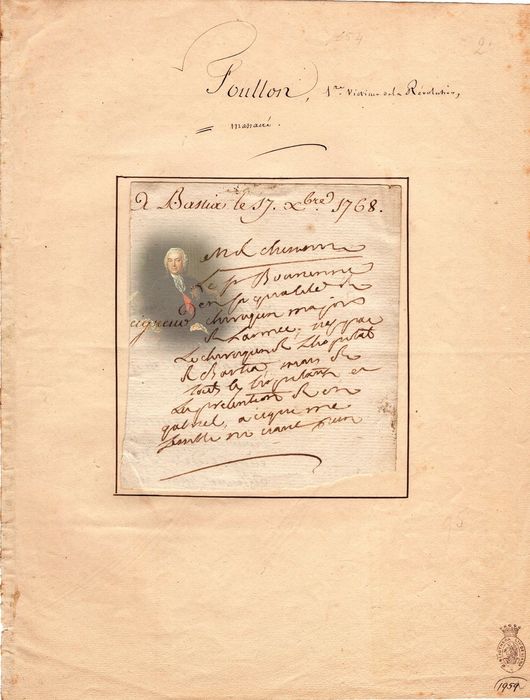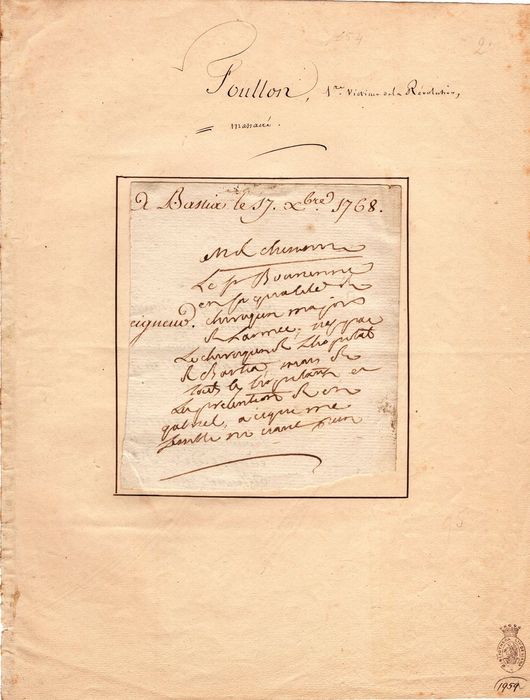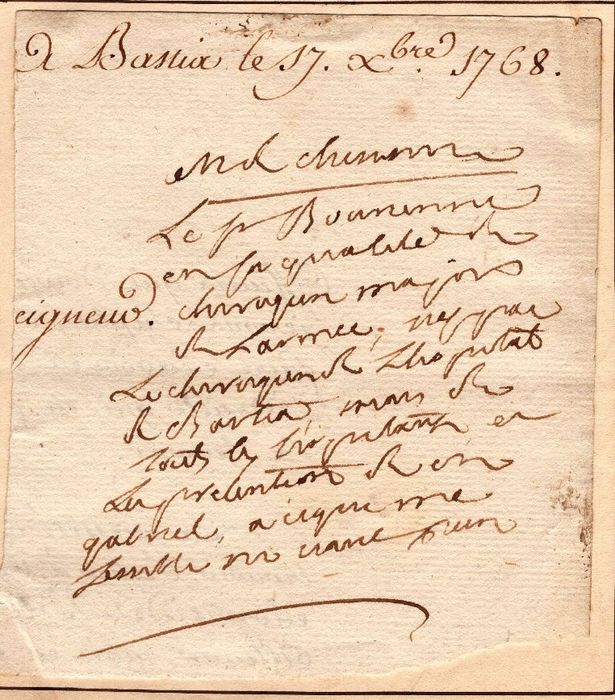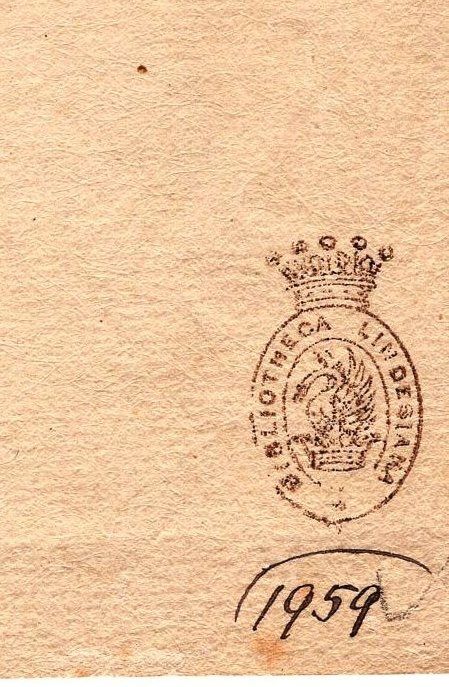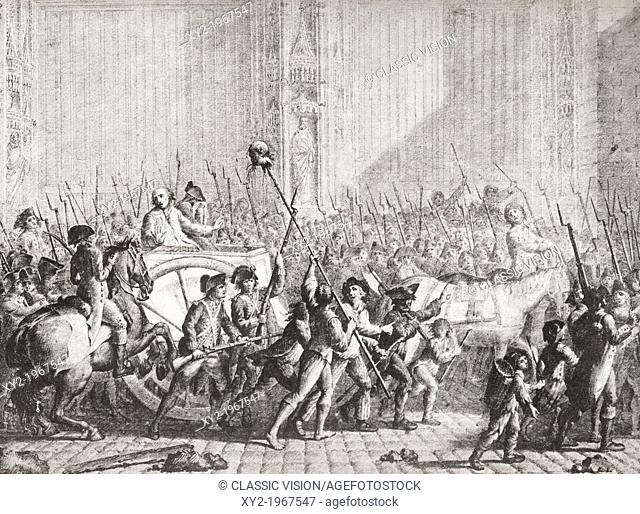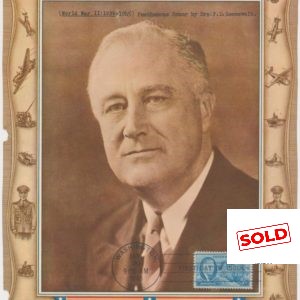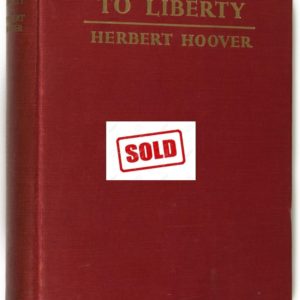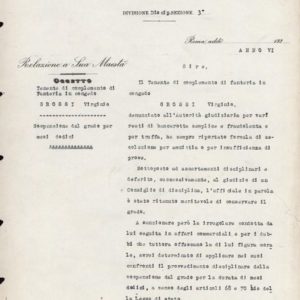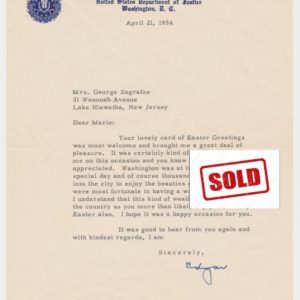Joseph François Foullon – One of the First Victims of the French Revolution – Autograph Fragment – 1768
€445.00
Description
On 11 July 1789, Louis XVI dismissed Necker and appointed Joseph François Foullon controller general of finance in his stead.
On 22 July 1789, Foullon was among the first to be massacred during the Revolution…
BASTIA , 17 December 1768
Handwritten signature on a letter fragment.
The fragment has been mounted on paper. It is an old piece from the collection of James Ludovic Lindsay (who is an interesting person in his own right) from his Bibliotheca Lindesiana.
(Collection mark on the bottom of the paper).
On 22 July 1789, he was arrested, taken with hay in his mouth through the streets, hanged, decapitated before the Hotel de Ville de Paris, his head placed on a stake.
Foullon was appointed Controller-General of Finances in 1789, replacing Jacques Necker, who enjoyed great popularity with the citizens of France. Foullon, however, was less well-loved and seen as a sop to the conservative traditionalists, interested only in preserving the power of the ruling classes. He was a strict disciplinarian and rumours spread that not only had he grown rich from the suffering of the poor and manipulated the food supply for financial gain, but that he had once said of the starving peasants, “If they have no bread, then let them eat hay”.
The shrewd Foullon was no fool and, once the Bastille fell, he fled Paris to take refuge in Viry-Châtillon. Here he began to put word about that he was dead, including staging a fake funeral. However, news of his location eventually leaked out and the once powerful man was seized by local people. Stripped of his shoes, a garland of thistles about his neck and bales of hay tied to his back, Foullon was dragged to the Hôtel de Ville. When he complained of thirst, Foullon was given vinegar and the sweat of his brow was wiped with stinging nettles in the harsh summer heat.
Despite the best efforts of officials, the furious citizens would not be stilled and Foullon was dragged to the Place de Grève to be hanged. On three occasions he was strung up and on three occasions the rope broke. Finally the man who had known such influence was beheaded, his severed head paraded through the streets with his mouth stuffed full of hay in answer to his reported comments on the starving people of France.

